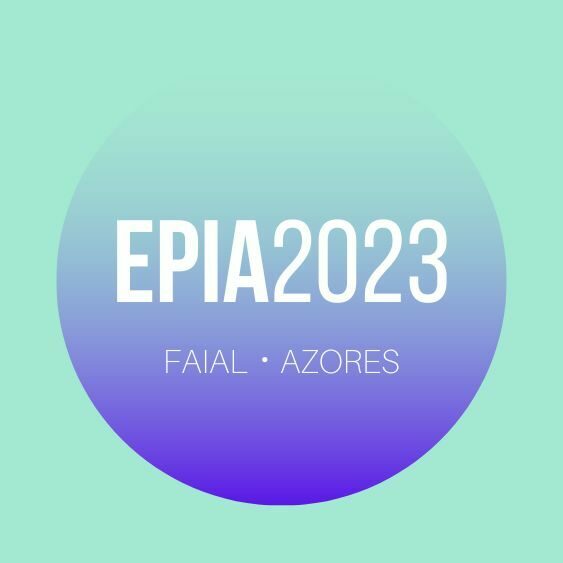Artificial Intelligence in Medicine
Every day medicine is facing new challenges: new diseases, cost reductions, new therapeutics, rapid and accurate decisions, new techniques and technologies. Artificial Intelligence (AI) is playing an important role in the decision making process, in the way the data of the patients are collected, treated, processed, anticipating and avoiding critical situations, as well to test and simulate new treatments and devices. The big question to be answered is: How Artificial Intelligence can help to overcome these challenges and improve the efficiency of medicine? Data Science, Sensing, Pervasiveness, Ubiquity and Intelligent Agents in Medicine, can contribute with new artifacts and new knowledge for health professionals. AI aims to improve the usability of programs for assisting physicians in figuring out what is wrong with the patients and provide new solutions to help making better decisions. AI systems are intended to support healthcare practitioners in the normal course of their duties, assisting with tasks that rely on the manipulation of data and knowledge. In particular, these systems have for example the capacity to learn, leading to the discovery of new phenomena and the creation of medical knowledge improving human health and longevity.
This track promotes a forum to discuss and present emergent topics, new projects and ideas about how AI can contribute to the field of Medicine and, improve patient conditions. By bringing together researchers from two distinct areas is expected to produce new scientific and technical knowledge in a particular area as is medicine. Special attention will be given to the social impact/gain of the AI contributions in medicine.
Being EPIA the most relevant meeting in the Artificial Intelligence field organized in Portugal, it is fundamental to discuss a central theme as is the application of AI in medicine. Because questions associated to medicine are very important to the society and to the research community, it is imperative to promote the discussion and knowledge dissemination, in Portuguese territory, on how the Artificial Intelligence can contribute to improve patient conditions and help the healthcare professionals.
TOPICS OF INTEREST
Medical methodologies, architectures, environments and systems
- Agents for information retrieval
- AI in Medical Education and Clinical Management
- Wellbeing and lifestyle support
- Interoperability, Security, Pervasiveness, Ubiquity and Cloud Computing in Medicine
- Methodological, philosophical, ethical, and social issues of AI in Medicine
- Pervasive Healthcare Environments
- Software architectures
Knowledge engineering and Decision Support Systems
- AI-based clinical decision making and Clinical Decision Support Systems
- Automated reasoning, Case-Based Reasoning or Reasoning with medical knowledge
- Business Intelligence in Health Care
- Clinical Data Mining
- Machine Learning and Deep Learning
- Data Streaming
- Diagnostic assistance
- Expert, agent-based or knowledge-based systems
- Genomic data
- Medical knowledge engineering
- Intelligent / Cognitive Decision Support Systems in medicine
Medical Applications and Devices
- Computational intelligence in bio- and clinical medicine
- Electronic Health Records (eHealth)
- Image recognition and interpretation
- Intelligent devices and instruments
- Sensor-based applications
- mIOT
- Telemedicine and mHealth solutions
- Ubiquitous devices in the storage, update, and transmission of patient data
- Usability and acceptability
AI in Healthcare Information Systems
- COVID19 Data Solutions, Public Health Intelligent Systems, Autonomous systems to support independent living
- Healthcare System Based on Cloud Computing
- Intelligent Healthcare information systems
- Pervasive Information Systems
- Pervasiveness and Security in Clinical Systems
- Smart homes, hospitals and Intelligent Systems
- Simulation
- Computer systems
ORGANIZATION COMMITTEE
- Manuel Filipe Santos, University of Minho, Portugal
- Carlos Filipe Portela, University of Minho, Portugal
- Allan Tucker, Brunel University London, United Kingdom
- Manuel Fernandez Delgado, Centro de Investigacion en Tecnoloxias Intelixentes da USC (CiTIUS), Spain
Program COMMITEEE
- Álvaro Silva, Institute of Biomedical Sciences Abel Salazar, Portugal
- António Silva Abelha, University of Minho, Portugal
- Barna Iantovics, Petru Maior University of Tîrgu-Mureş, Romania
- Beatriz de la Iglesia, University of East Anglia, UK
- Brígida Mónica Faria, School of Health, Polytechnic of Porto, Portugal
- Cinzia Pizzi, Universita’ degli Studi di Padova, Italy
- Giorgio Leonardi, University of Piemonte Orientale, Italy
- Göran Falkman, Universitet of Skövde, Sweden
- Goreti Marreiros, Porto School of Engineering, Portugal
- Henrique Vicente, University of Évora, Portugal
- Hugo Daniel Abreu Peixoto, University of Minho , portugal
- Inna Skarga-Bandurova, Oxford Brookes University, UK
- José Machado, University of Minho, Portugal
- José Maia Neves, University of Minho, Portugal
- Júlio Miguel Marques Duarte, University of Minho, Portugal
- Luís Gomes, University of Azores, Portugal
- Michael Ignaz Schumacher, University of Applied Sciences Western, Switzerland
- Panagiotis Bamidis, Aristotelian Univ. of Thessaloniki, Greece
- Pedro Gago, Polytechnic Institute of Leiria, Portugal
- Pedro Pereira Rodrigues, University of Porto, Portugal
- Ricardo Martinho, Polytechnic Institute of Leiria, Portugal
- Rui Camacho, University of Porto, Portugal
- Shabbir Syed-Abdul, Taipei Medical University, Taiwan
- Susana Brás, University of Aveiro, Portugal

